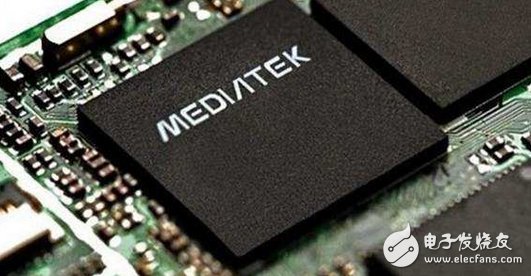MediaTek, the Taiwanese mobile chip supplier, is struggling to enter the US market and upgrade its position in the local market of its main competitor, Qualcomm, which is expected to bring more smartphone options to US consumers, but this process Faced with heavy challenges.
MediaTek has dominated China's low-end mobile phone market, and it wants to subvert the idea of ​​Americans buying the next smartphone. MediaTek wants to make cheap phones more attractive to consumers and become a truly global mobile company. Last year, MediaTek opened offices in India and Finland, but perhaps the United States is its most important market and the most challenging market. In order to enhance its position in the US market, MediaTek opened its office in San Diego, Calif., the location of Qualcomm's headquarters, the world's largest mobile chip maker.
At the Las Vegas International Consumer Electronics Show (CES) earlier this year, MediaTek executives said they have developed a US market plan. If they succeed in North America, they will not succeed anywhere else. problem. "If you want to be the most global company in the mobile space, you must sell chips in North America," said Xie Qingjiang, general manager of MediaTek, at an interview at CES.
In the field of mobile chips, MediaTek is in second place, but it lags far behind the industry leader Qualcomm. Other major mobile chip companies, including Intel, are hard to shake Qualcomm's position. If MediaTek can make great strides in Qualcomm's home market, it will become a more powerful competitor and bring more cheap mobile phone choices. But in this process, MediaTek has a long way to go.

Today, the US smartphone market is dominated by high-end mobile phones from Apple and Samsung, with Apple's iPhone mainly using Apple's own chips and Qualcomm chips, while Samsung's flagship phones use Qualcomm chips. MediaTek executives believe that US mobile operators are reducing their hardware subsidies and shifting to a monthly installment sales model, which gives them opportunities to make a difference. This trend will show the true cost of the phone, for example, the basic price of the iPhone 6 will reach 650 US dollars, so many people will start to consider buying a lower-priced mobile phone.
In this price range, consumer demand has begun to increase, and many mobile phone manufacturers have already heard the trend. For example, Microsoft launched the Lumia 532 and Lumia 435 earlier this month, all for less than $100. The Motorola Moto G is priced at less than $200, and emerging forces such as ZTE and Alcatel are more eager to meet the needs of these consumers.
However, MediaTek's popularity and exposure in the United States are very low. So far, it has only been certified by T-Mobile, and only a few well-known US phones have adopted its chips, such as Alcatel OneTouch Fierce, Evolve and Evolve 2.
"For this company, the US market is an opportunity, but it is not difficult to challenge Qualcomm here." Jon Erensen, research director at market research firm Gartner, believes that with smartphone makers Beginning to find other chips besides Qualcomm, MediaTek may open a gap.
Of course, MediaTek’s results have already caught Intel’s attention. There are rumors that Intel has been considering the acquisition of MediaTek to promote its development in the mobile field. The current market value of MediaTek is approximately $28 billion. For the acquisition rumors, MediaTek executives denied any transaction negotiations with Intel and the company will operate independently. Intel declined to comment.
MediaTek enters the mobile market
In 1997, MediaTek was spun off from UMC and became an independent company. Initially the company provided chips for digital TV, CD and DVD players. Google (microblogging) has become a regular customer of its TV and audio chips. About 10 years ago, the company entered the field of mobile devices, and now it has become its largest business, and has established a dominant position in the Chinese market, helping emerging mobile phone manufacturers such as Xiaomi, Oppo and Alcatel (now a TCL brand). And ZTE and other mobile phone giants to create high-profile low-cost mobile phones.
The rise of these entry-level smartphones has brought tremendous boost to MediaTek's business. In the fourth quarter of last year, MediaTek's revenue was approximately US$1.8 billion, a year-on-year increase of 47%, and net profit increased by 58% year-on-year. In contrast, Qualcomm's revenue last quarter was about $6.7 billion, a year-on-year increase of only 3%, and net profit growth was about 26%.
Alps Detection Switch,Leak Detection Switch,Light Detection Switch,Detection Switch For Camera
DA CHENG MINGHUA LIMITED , https://www.alpsswitch.com